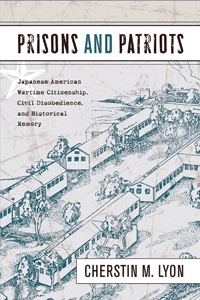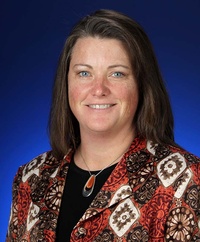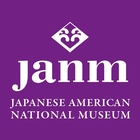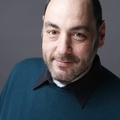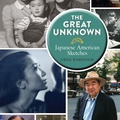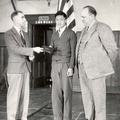Gordon Hirabayashi patiently sat in a jail cell as military officials discussed what to do with him. He had refused to register for relocation to Tule Lake, and yet the military could not allow him to stay in Seattle. Hirabayashi suggested that the military forcibly remove him to the regional assembly center so that the military would be in compliance with the exclusion order and he did not have to betray his conscience by obeying a racially discriminatory law that was unconstitutional. He was surprised and a bit amused when they told him that they could not forcibly remove him. He was told he had to comply voluntarily.
Dr. Lyon, who authored Prisons and Patriots and is an Associate Professor of History at California State University, San Bernardino, first met the late Gordon Hirabayashi in November 1999 when she was invited to interview him and several Nisei draft resisters who attended the U.S. Forest Service’s renaming ceremony of the former Tucson prison where they served their prison terms. The site was renamed the Gordon Hirabayashi Recreation Site.
In interviewing him, Dr. Lyon learned that Hirabayashi had at some point decided that to obey an unjust law was to support it. Subsequently, he began “[taking] small steps to make sure his personal values matched his everyday actions. As time went on, and as his commitment to pacifism and the Constitution were challenged more directly, he took bigger steps.” If a law was fair and just, he would obey; but if a law was clearly racially discriminatory or if it contradicted his most deeply-held spiritual beliefs, he would not. Consequently, Hirabayashi “started down a path of deliberate, thoughtful living that put him in jail once and prison twice.” As he put it, however, his felonious reputation was nothing compared to the feeling with which he would have had to live if he failed to honor his conscience.
To Hirabayashi, following what he believed to be right was absolutely worth suffering any unpleasant consequences that not obeying the law brought upon him.
What seemed so clear to Hirabayashi back then may not always be so clear to the rest of us. As Dr. Lyon mentions in her book, “[w]hen individuals are asked to obey a law or comply with an order from a source of authority that contradicts their most deeply held values, it can be hard to remember that we are all still free to make our own choices.” Moreover, in a democratic society such as ours, “we have the right to refuse any order, or any law.” Though, “with that freedom comes the responsibility to accept the consequences.”
Dr. Lyon always has been drawn to stories of resistance, such as the way ordinary people resisted military dictatorships in South America, the way Chinese immigrants resisted exclusion policies around the turn of the twentieth century, and the way Native Americans whose tribal lands have been divided by the international borders of the U.S., Mexico, and Canada have worked to achieve stable border-crossing rights to tribal members cut off from certain services.
A childhood event, actually, may have set her off on such a course from early on. When Dr. Lyon was a young teenager, her older sister fell in love with an Argentinian man who would later become her husband, but to whom her parents objected strongly at first. Even though “he shared [her] sister’s spiritual beliefs and values, [her] parents argued that his culture and language would make their relationship difficult at best.” Naturally, her parents tried to force her sister to break off the relationship. Thus, Dr. Lyon “became aware at an early age that even within [her] family there were lingering prejudices about who could be included and who might be excluded based on ideas that in the end had little bearing on reality.” Fortunately, her parents were wrong; her sister “remains happily married to her husband” and their marriage has enriched the lives of her entire family.
In fact, talking with her brother-in-law is how Dr. Lyon first learned “about life under a military dictatorship.” From there, she went on to read about political resisters, secret prisons, and about the disappeared in Argentina. Also, growing up, she learned about the Japanese American incarceration from one of her best friends whose parents were children in a concentration camp. Furthermore, in her graduate studies, she learned about Chinese exclusion. “Each story made [her] more curious about how governments, communities, and families create their own boundaries and how the passions of individuals tend to disrupt and break down those artificial walls that divide us.”
Inclined toward stories of resistance, Dr. Lyon carefully listened to Hirabayashi and the other draft resisters back in 1999. Sure, their stories and why they chose “civil disobedience, their prison experiences” as well as their treatment “by other Japanese Americans because of their resistance” are thoroughly expounded upon in Prisons and Patriots, but the scope of Dr. Lyon’s work is so much broader.
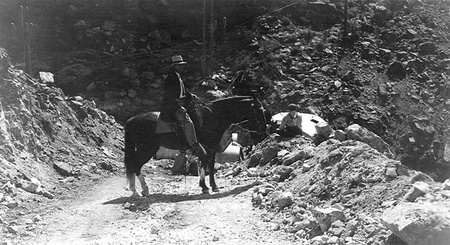
A prison guard watching men build a culvert on the highway built by prisoners housed at the Tucson Federal Prison. All of the men pictured in the previous photograph spent some time building that road under those same conditions. The prison photo is from the war years, courtesy of the National Archives.
With the utmost respect for our veterans, including those valiant Japanese Americans who fought in the 442nd, Dr. Lyon contends that we should not lose sight of the freedoms “won in court and in prison.” Furthermore, she states that those individuals willing to go to prison instead of obeying an unconstitutional law are directly responsible for keeping “the boundaries of our democratic freedoms large and inclusive.” Indeed, those “like Gordon Hirabayashi make room for more ordinary conversations about the balance between our rights and responsibilities of citizenship.”
To this end, Prisons and Patriots offers the intimate experiences of Hirabayashi and other draft resisters to illustrate the idea of citizenship as a dynamic relationship between individuals and the state. In such a relationship, Dr. Lyon explains that “[i]ndividuals bear great responsibilities and possess a great deal of power in the ways they choose to define their own relationship with the state in peacetime and in war, as well as when they are children and adults. [She] thought the basic story of Japanese American men in particular, coming of age during the war, having their rights and even their citizenship suspended, and then being drafted into the military provided an excellent case study for a careful analysis of the various layers of citizenship.”
“Why did not more people resist the draft? What were some other ways in which individuals and groups expressed their dissatisfaction with wartime policies of exclusion and the segregated military? What, if anything, does this story teach us about the complex nature of citizenship in times of war and peace?”
In the course of 12 years of researching and writing Prisons and Patriots, many such questions had Dr. Lyon in and out of the National Archives, various university archives, personal collections of draft resisters and their families, and the resources at our very own Japanese American National Museum. Dr. Lyon was awarded a California Civil Liberties Public Education Program grant to re-interview Gordon Hirabayashi and the other resisters in 2002. Additionally, she “won several other grants to support [her] continued research, writing, and return trips to various archives over the years.”
Dr. Lyon will cherish the time she was able to spend with the resisters and their families in researching this book, and is appreciative for the continued friendships that have enriched her and her family’s lives “in unexpected and heartwarming ways.” Furthermore, she is grateful for the opportunity to write this book so she might prove Joe Norikane, a prominent draft resister, a prophet for having said, “[If we] leave a footstep in the sand of time, somebody might look back on what was going on during the war and get curious.” Additionally, she acknowledges Kay Yoshida, wife of resister Ken Yoshida, as “probably the most important champion of [her] work.” Kay made her feel welcome in her home. Kay encouraged her. Kay sent cards to her children. Dr. Lyon felt like Kay truly welcomed her into her heart. Just as important, Kay pushed her husband to reveal more personal, intimate thoughts about his life to Dr. Lyon than he likely would have shared. When Kay lost her battle with cancer, Dr. Lyon “lost a close, personal friend.”
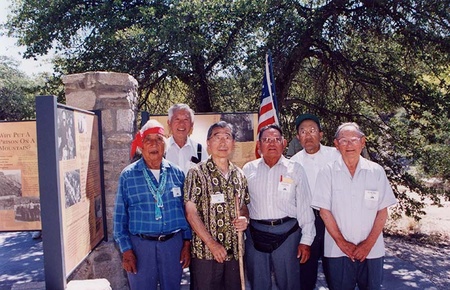
A group picture of (L-R) Roger Nasevema, Ken Yoshida, Gordon Hirabayashi, Sus Yenokida, Harry Yoshikawa, and Noboru Taguma at the 2002 unveiling of the interpretive kiosk at the Gordon Hirabayashi Recreation Site. Photograph courtesy of Martha Nakagawa.
Since publication, Dr. Lyon’s book has been received very well, both for its scholarly precision and for filling a much-needed gap in Japanese American draft resister literature.
Franklin S. Odo, Chief of the Asian Division, Library of Congress, has proclaimed: “Prisons and Patriots adds welcome depth and analysis to a growing number of works that are now disclosing two increasingly important reasons the Japanese American experience during WWII needs further research: first, the complex ways in which the Japanese American communities responded to the unconstitutional barbarity with which the U.S. government treated them and, second, the fascinating ways in which postwar actors sought to play roles in the crafting of a metanarrative for the ethnic group, the war, and the nation.”
Frank Wu, Chancellor and Dean of University of California, Hastings College of the Law, and author of Yellow: Race in America beyond Black and White commented: “In Prisons and Patriots, Cherstin Lyon presents, in a clear, accessible style, original material that is not available elsewhere. She provides interesting case studies of the internment of the draft resisters—known as ‘Tucsonians’—along with an examination of the generational conflict within the Japanese American community. Her discussion of internal tensions, in particular regarding the role of the Japanese American Citizens League, which was viewed as hyper-assimilationist and insufficiently protective of civil rights, is balanced and nuanced, and her research methodology is sound.”
The well-known Nichi Bei Times stated: “Prisons and Patriots is Cherstin Lyon’s first book. Its publication catapults Professor Lyon … into the ranks of the premier scholars of WWII Japanese American protest and dissent.... The genius of Lyon’s book lies less in the stories she recounts than in her placing them into instructive and relevant contexts. The most important of them concerns the nature of citizenship.”
Despite such wide-ranging acceptance, Dr. Lyon is aware that her audiences sometimes can be a little uncomfortable deviating from their very narrow definitions of patriotism and that there are still those who believe “that all ‘Japanese’ posed a threat to the U.S. during WWII.” Also, according to Dr. Lyon, because of the “militarized society” in which we live, it is “difficult to discuss civil disobedience—especially draft resistance—without the conversation turning on narrow definitions of loyalty, patriotism, and duty to country.” She remains hopeful, however, that the vast majority of Americans will be open to reading a book that may challenge traditional notions.
With that said, Dr. Lyon was “deeply influenced by the events following September 11, 2001. It shaped the writing of [her] book in very specific ways.” From that tragic day through the U.S. invasion of Iraq and beyond, her “research into WWII has given [her] the ability to interpret and even predict certain behaviors that seem to correspond with the transition from peace to war.” In fact, in 2001 and 2002, she “was just starting the intensive research phase of her dissertation,” which was a precursor to her book. Dr. Lyon felt like screaming from the top of the tallest building so everyone could hear: “Don’t you all see what is happening?” Furthermore, she “felt frustrated by what [she] perceived to be thinly-veiled propaganda that discouraged independent thought and encouraged narrowly-scripted performances of patriotism.” Consequently, she “worked hard to respond to what [she witnessed] with the clearest, most accessible book [she] could write.” She hopes that Prisons and Patriots “will have the effect of making people think and question how narrowly we define our citizenship and what we call patriotism.”
The beauty of Dr. Lyon’s approach to the publishing of her book is that she sees her book as merely “a starting point,” and not the last word, on the subject. She realizes that “[t]here is still much to be learned from studying Japanese American history, both during and beyond the confines of the WWII experience.” She just wants her book to “inspire[] some interesting conversations,” maybe raise some new questions, and perhaps have others contribute their own research to the subject of draft resistance and dynamic citizenship.
Ultimately, however, this book may not be about the hardships of the draft resisters or even citizenship. The take-away may hit each reader much closer to home. The crux of the book’s message may very well be to encourage children to put down their mp3 players and cell phones for a while and to take some meaningful time “to ask their parents and grandparents in more deliberate ways about their lives,” and to record those interviews for posterity’s sake. Families likely will become closer and the younger generations likely will better understand the older generations. One of the things that most surprised Dr. Lyon was “when the adult children of the resisters [she] wrote about [would tell her] that they never heard some of their parents’ stories that had become so familiar to [Dr. Lyon]” over her years of research. Even if you do not want to knit a closer family unit, however, do it anyway so future generations can honor those footsteps that have been left in the sands of time.
Upcoming project
Dr. Lyon’s next book is tentatively titled, On the Borders of Citizenship. It will comprise a series of case studies exploring the diversity and complexity of U.S. citizenship laws that defined the U.S.’s relationship with both its imperial possessions and native nations throughout the twentieth century. More specifically, the case studies will involve “the Philippines, Guam, Puerto Rico, Hawai’i, and the Native American nations that straddle the U.S. borders with Mexico and Canada.” Building on her experience with Prisons and Patriots, where she was privileged to gain insight into citizenship through the focused lens of “one specific ethnic group during one historic time period,” Dr. Lyon now strives to expand our collective knowledge about citizenship by helping us “understand the limits and boundaries of our nation’s citizenship laws” from a more macro perspective.
Please join us on June 23, 2012, at 2:00 P.M., as The Japanese American National Museum hosts author Dr. Cherstin Lyon for a book discussion regarding her work, Prisons and Patriots: Japanese American Wartime Citizenship, Civil Disobedience, and Historical Memory. Additionally, if you are unable to make this book event, it is available for purchase in the Museum Store or online at http://janmstore.com/150177.html.
© 2012 Japanese American National Museum


